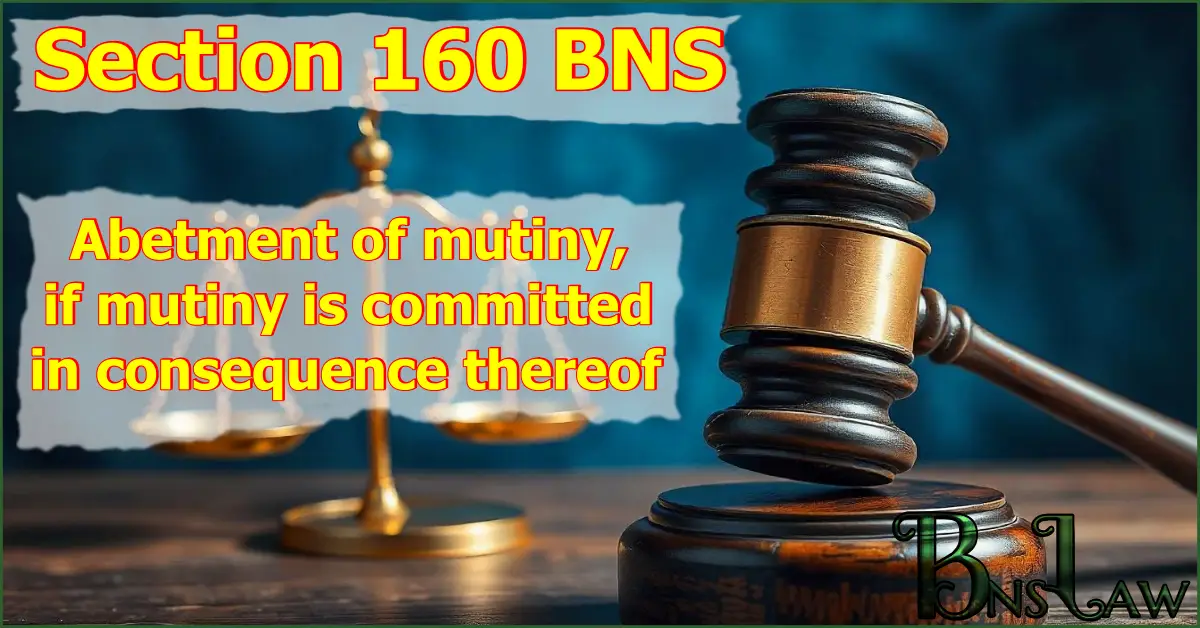Section 160 BNS
Whoever abets the committing of mutiny by an officer, soldier, sailor or airman, in the Army, Navy or Air Force of the Government of India, shall, if mutiny be committed in consequence of that abetment, be punished with death or with imprisonment for life, or imprisonment of either description for a term which may extend to ten years, and shall also be liable to fine.
READ OTHER SECTIONS OF CHAPTER VIII — OF OFFENCES RELATING TO THE ARMY, NAVY AND AIR FORCE
FAQs of BNS Section 160
-
160 BNS punishment and fine
Punishment and fine under Section 160 of the BNS: Death, or imprisonment for life, or imprisonment for 10 years and fine.
-
160 BNS cognizable or not
The offence under Section 160 of the BNS is cognizable.
-
160 BNS bailable or not
The offence under Section 160 of the BNS is non-bailable.
-
160 BNS trial court
Offence specified in Section 160 of the BNS is triable by the Court of Session.
Important Points
- Cognizable Offences: These are offences where a police officer can arrest a person without a warrant.
- Non-Cognizable Offences: These are offences where a police officer cannot arrest a person without a warrant.
- Bailable Offences: These are offences where the accused can get bail from the police station itself. All bailable offences are listed in the First Schedule of the Bharatiya Nagarik Suraksha Sanhita (BNSS).
- Non-Bailable Offences: Offences in which bail is not granted directly from the police station but after hearing the case in the court, the judge decides when bail will be granted. All non-bailable offences are listed in the first schedule of the Bharatiya Nagarik Suraksha Sanhita (BNSS).
- In the above FAQ, “trial court” means the court that has jurisdiction to try the offence.
- In the above FAQ, the expression “Magistrate of the first class” and “Any Magistrate” does not include Executive Magistrates.
Read other Sections of the BNS
Reference Link: New Criminal Laws (BNS), Ministry of Home Affairs







